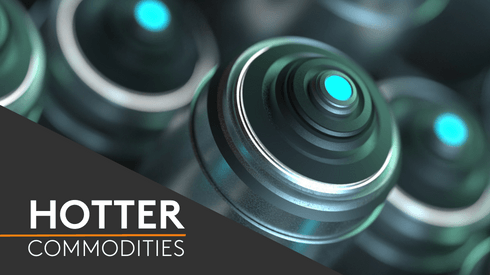“By centralizing our efforts, we are better equipped to deliver the next generation of energy solutions to meet the growing demands of the global market,” chief development officer Sami Haikala said in the announcement on August 20.
The plant will close effective October 19, 2024, with 196 employees to be laid off, according to a Worker Adjustment and Retraining Notice (WARN) filed on August 20.
Northvolt developed its lithium-metal battery technology for electric mobility industries, including aviation, through Cuberg, a fully-owned subsidiary acquired in 2021, operating in the San Francisco Bay Area.
Northvolt-Cuberg acquisition update
The acquisition announcement at that time stated that Cuberg’s batteries were based on electrolyte technology for lithium metal anode, with the cells delivering more than 70% increased range and capacity versus comparable lithium-ion cells designed for high-rate electric aviation applications. The companies had planned to industrialize cells that exceed 1,000 watt-hours per liter in 2025.
The August transfer announcement followed a detailed assessment of the technology and its market applications undertaken by the Cuberg leadership team in close collaboration with Northvolt, according to the announcement. Shauna McIntyre, Cuberg’s chief executive officer, will remain in a leadership role within Northvolt North America.
“The move strengthens Northvolt’s long-term commitment to advanced battery development and better positions it to engage industry first-movers with a technology that holds great promise,” McIntyre said.
Northvolt has encouraged Cuberg employees to apply to open positions across Northolt, including Northvolt Labs and Northvolt North America in Montreal.
Some battery materials market participants were surprised by the move. But one source said the closure “must be for good reason,” but that the company “won’t need to disclose at this stage” their reasoning behind it.
A second source said that they believed the closure had more to do with Northvolt trying to consolidate than with bearish sentiment about the Bay Area economy. Current negative sentiment could simply be a “catalyst” for the company to move its business to Europe, the source said.
Richard Wang, Cuberg founder and former CEO, wrote in a LinkedIn post on August 20 that it was a “sad day for me, the entire Cuberg family…and the battery industry at large.”
“Since 2015, the Cuberg team has worked tirelessly to advance the state of the art in battery technology,” the post said. “Together, we built a pioneering set of lithium metal battery technologies, worked with some of the most exciting high-performance mobility brands and projects in the world.”
Wang, as well as Reza Nikfar, Cuberg’s then-chief operating officer, and Michael Bartholomeusz, former chief strategy officer, departed the company in late February.
Further changes in Northvolt leadership
The move also follows more recent changes to Northvolt leadership, announced in July. Pia Aaltonen-Forsell assumed the role of chief financial officer, while Alexander Hartman, who had held the CFO role, moved to chief transformation officer “to lead Northvolt’s…company strategic review.”
Additionally, Matthias Arleth assumed the role of president of cells, with a focus on “driving the execution of Northvolt’s growth strategy, beginning with its first gigafactory in Skellefteå, Sweden, alongside taking responsibility for Northvolt’s battery cell technology R&D and production.”
Northvolt had been considered a leading potential battery supplier for the burgeoning air mobility sector. Other companies in the aviation alternative energy and battery sectors have also faced financial concerns and closures in 2024, including:
- Universal Hydrogen, a company that aimed to use hydrogen to power airplane engines instead of jet fuel, was reported as being unable to continue operations in June 2024.
- Fulcrum Bio-Energy’s waste-to-jet fuel plant in Nevada was reported to have shut in May.
- Bay Area battery maker Moxion Power filed three WARN notices on July 19, 2024, laying off 248 employees. Moxion filed for Chapter 7 Bankruptcy in Delaware on August 12.
Northvolt had already planned to strengthen its position in the European market. In early 2024, the company raised a $5 billion green loan package from a group of 23 commercial banks, including the European Investment Bank and the Nordic Investment Bank, to expand its cathode production and cell manufacturing.
In March, the company also started construction of a battery gigafactory, Northvolt Drei, in Heide, Germany. Operations at the facility are expected to commence in 2026, with a maximum annual production capacity of 60 GWh.






